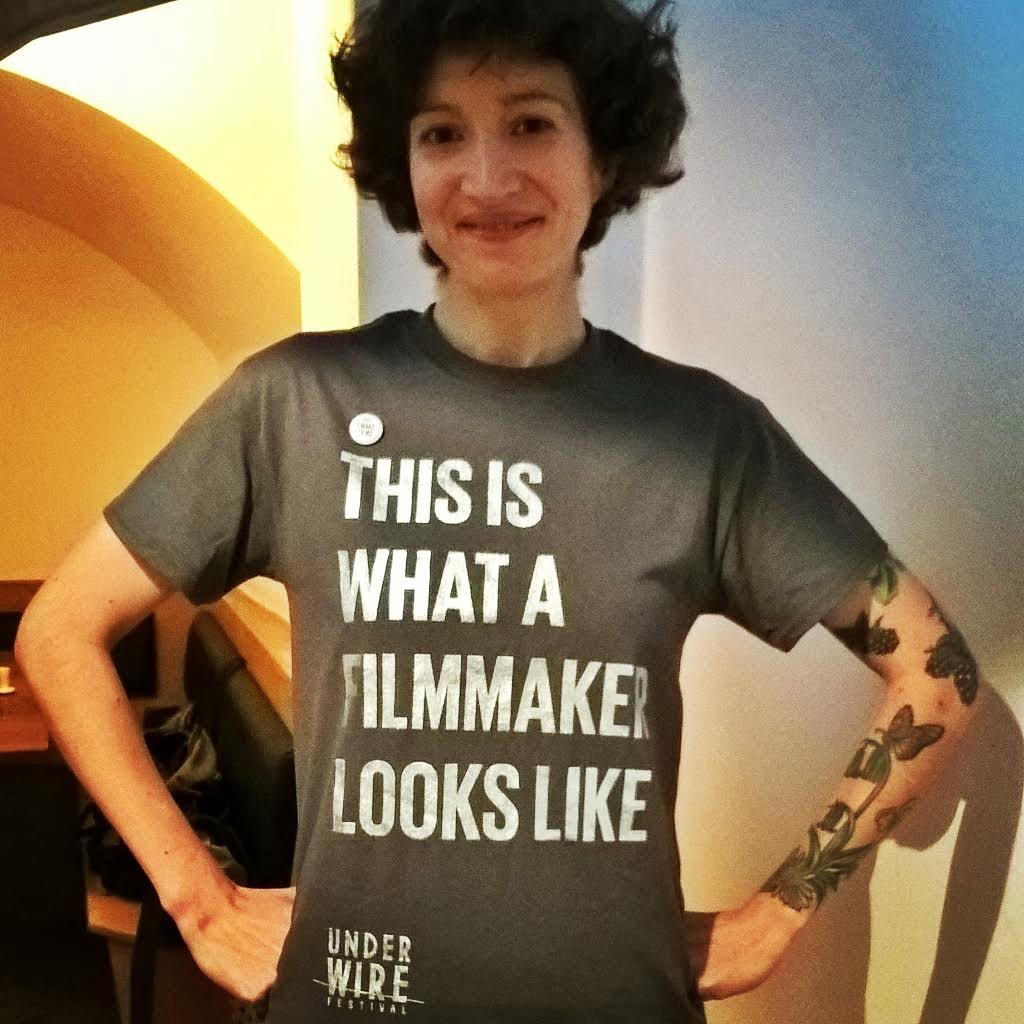In March 2010, over a caramel latte in a
Shoreditch café in London, the idea for the Underwire Festival was born. Since setting it up with Gemma Mitchell, I am co-producing Underwire, now in its sixth year, for the first time. The U.K.’s only film festival celebrating female filmmaking talent across the crafts, it will run this year from November 20–22 at Hackney Picturehouse.
Initially, we had just six categories,
recognizing U.K.-based women in directing, producing, writing, editing, cinematography and for onscreen representation (the XX Award). Now we have 10,
with acting, sound design, composing and U-25s (under age 25) added. Also for the first time, we will be screening feature films. Underwire is committed to changing the U.K. film
industry from the inside out, but it is an uphill struggle. This year marked the end of the Birds’ Eye View Film Festival, one of the longest-running and most successful
festivals celebrating women, though it will continue to run training
initiatives.
Instead of making us frustrated,
this galvanized all us to build on what has been created over the past six years.
With eight exceptional programs of short films across the 10 categories showing
over three days, the work we are showcasing is astonishing. From filmmakers at
the start of their careers to big-budget shorts starring big-name stars like Martin
Freeman (“The Hobbit”) and Olivia Williams (“Maps to the Stars”), the array of
material in fiction, documentary, animation, experimental, music video and art
film demonstrates what we will continue to prove until the statistics are fair: That women’s work is superb, and anything other than 50:50 representation is
unacceptable.
The features we are screening are all from
first timers: writer/director Helen Walsh’s “The Violators,” director Magali
Pettier and her co-producer Jan Cawood’s documentary “Addicted to Sheep” and a
special 20th anniversary screening of the inimitable Emma Thompson’s
first screenplay, “Sense and Sensibility.”
The familiar statistics feel stifling
enough, with only 27.2% of U.K. films produced by women and just 14% directed by
them. But when drilling down to discover that just 7.8% of U.K. films have a female
cinematographer and 6.4% have female composers, things begin to feel bleak. We’ve
all seen and despairingly laughed at the “Shit People Say to Women Directors” Tumblr. At
our regular events we continue to hear shocking stories from nominees past and
present: Cinematographers who are still patronized about whether they can
handle the weight of the cameras, sound designers who have left the industry
after feeling they couldn’t cope with the all-male working environments and so on.
So Underwire feels essential. Though we
depend largely on the generosity of our amazing partners, as well as ticket
sales, the festival’s existence is non-negotiable. By providing a platform for
the next generation of filmmakers, we want to ensure a fairer future for the
industry. From its inception, the festival has been built around an
understanding of what a filmmaker needs to move on to the next step, which is
why all of our prizes are training, mentoring and membership opportunities.
Previous winners are moving into feature films, and news of commissions and
successes are reported back to us with increasing frequency.
We’ve already run a training session this
year to help freelancers move on in their careers, from which this Top Tips video was collated, and on November 14 we held a day of industry panels and demonstrations. With an
all-female line-up covering editorial power, sound and composition, cinematography and a case study of the feature documentary “They Will Have to Kill Us First,” the
amazing contributors were inspirational and provided essential insights.
Podcasts of all sessions will be made available in the coming days.
Being at Underwire is an exhilarating
indication of what the future could hold for women in the film industry. New crews are assembled as people meet new friends and make
invaluable connections among women who share experiences and visions. With each year, what I felt on that drizzly
March day in 2010 feels ever clearer: That for change to occur, women must
support one another. We must create spaces in which to be heard, and when we
achieve success, must share it and create new opportunities. With all this to
look forward to, I am so excited for this year’s festival to begin. I hope
you can join us!






